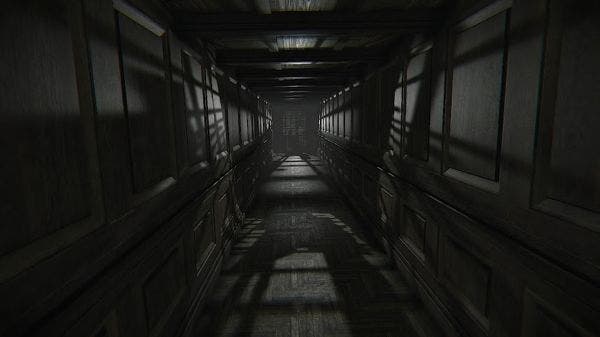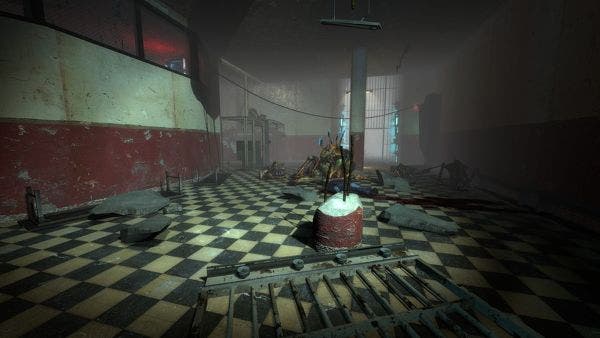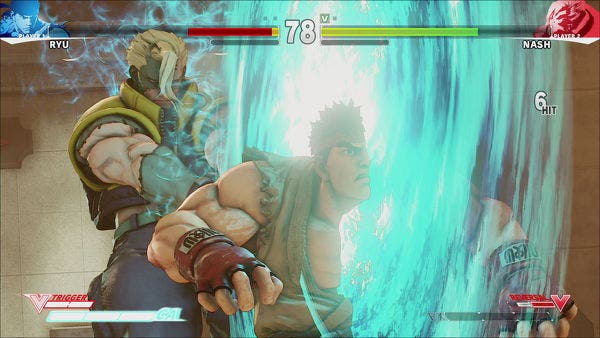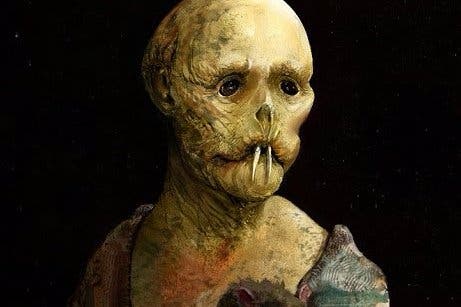In Play: What would a game about death look like?
A glimpse of the infinite?
It's not often I awake with a line from the Bible rattling around in my head, but this morning I opened my eyes, stared at the silvery dawn and thought, apropos of nothing, "There is death in the pot."
2 Kings 4:40, apparently. Not that that leaves me any the wiser. Still, that's a line with a nice ring to it, and it puts me in mind of Thomas Pynchon's observation about the role of death in literature. (Sorry, we get lighter in a minute.)
According to Pynchon - and I'm more willing to take his word for it than that of most people - "When we speak of 'seriousness' in fiction ultimately we are talking about an attitude towards death - how characters may act in its presence, for example, or how they handle it when it isn't so immediate.
"Everybody knows this," he adds, "but the subject is hardly ever brought up with younger writers, possibly because given to anyone at the apprentice age, such advice is widely felt to be effort wasted."
That's from the wonderfully generous introductory essay in Slow Learner, a book I bought and read in July of 1998 - I wrote the date in the inside cover for some reason - and the passage obviously struck me quite considerably, as there is a faint graphite line underneath it, dimmed by time yet still quavering with a distinctly undergraduate intensity. Since then, I guess, I've mainly been writing about games. And what do games make of death?
It's a preoccupation, if this week is anything to go by. In beta-land, there's The Division, turning plague-ridden Manhattan into a winter wonderland of doom, and Hitman, which offers huge playgrounds for macabre imaginations to run riot in. Is this really death, though? Unlikely. The Division is a game with ties to Tom Clancy, after all, and for Clancy death isn't a serious matter so much as a glib moral punchline, a zesty affirmation that the good guys are still alive, Godammit. Then there are all those numbers, turning each enemy into an XP pinata - a lifeless thing you whack for candy. Hitman, too, is a distinctly transactional take on mortality: a Mousetrap world, a Rube Goldberg world. Yet more punchlines, if, thankfully, less moralising and XP.

The week's main releases make a better go of things, however. Layers of Fear and Prospekt are two of this week's central offerings and they're both games inspired by deaths - not of people, but of other games. Would there be any Layers of Fear without the cancellation of PT? Hard to say, but I doubt we'd be talking about it, anyway. Still, this indie horror knows a good trick when it sees one, blending Kojima's dark playfulness with House of Leaves and a little Bishop Berkeley to make a game in which what's right in front of you is the only thing you can truly rely on.
"We're all used to 'it's behind you' moments in horror games," writes Edwin in our review, "but Layers of Fear's contributions are a cut above, with entire environments shape-shifting the instant they escape your gaze. A low-key scenario might run as follows: you walk into a room, typically a firelit room full of smashed-up bookcases, worrying stains and paintings derived from the Thousand Yard Stare school of Golden Age Dutch portraiture. Across the room there is something shiny and interactive-looking. You trot over to collect or fiddle with it, turn around with your prize and oh, what's this? The door isn't there anymore. You turn around again and - crikey, there's a stuffed deer's head millimetres from your nose. You turn again and by Jove, the fireplace is melting. You turn a final time and, thank heavens, there's another door."
Sounds good? Sadly, insipid writing and a patina of cheap scares undermine the end result. A lack of confidence in the central premise? All problems, as Pynchon might say, associated with the apprentice age.

Prospekt is similarly patchy. Rick Lane had a look at this Half-Life 2 mod that has gathered most of its word of mouth since Valve annointed it as an official continuation of the narrative of Half Life: Opposing Force - even that feels like arch, hyper-evolved trolling, to be honest - and I felt pretty confident that death would get a good airing here. Not only does the mouldering shadow of Half-Life 3 hang over the project, but the game's set in Nova Prospekt, the Combine's premier prison/ossuary, and a location that has always felt like the ghoulish post-human centre of a ghoulish and post-human series.
In the end, however, maybe death got a little overplayed. "Despite its fairly brief length, the relentless hordes of Combine eventually become repetitive," notes Rick, "culminating in that abysmal chunder-chamber for the finale. Part of Half Life's beauty is how it constantly mixes up the combat. Prospekt finds a beat and sticks to it, with only slight variations in rhythm." Too much death. Hard to be serious when you're neck-deep in the bodies of things that you've killed yourself.
Thankfully, here is Philip K. Dick to save the day, via Californium, a game that takes great inspiration from the writer's sad life and strange back catalogue, and dumps you into a woozy, lurid, narco-hypnotic version of the West Coast, all throbbing oranges and - because it's Philip K. Dick - warping geometry. Death is everywhere in this game, even though I played for an hour or so and nobody actually died. It's Philip K. Dick death, remember. Disappointment and loathing, the death of the soul, but with the imagination left alive to act as witness.
All of that leaves Street Fighter 5, and while this is a fighting game, death itself has been banished, both in the inevitable time-tunnel of endless sequelising and in the basic life-affirming joy of these huge, colourful characters, battling each other in such gloriously insane environments.

It is very hard to look at the brawling Greek gods of Street Fighter and think that there might be death in the pot. And maybe this time, this legendary game can be even more accomodating than normal: "What we have here is an easier to learn, still hard to master experience," writes Wes. "Linking together normal attacks and special moves and even the ultra powerful Critical Arts often feels achievable, where in previous Street Fighter games more advanced combos often felt impossible. I'm all for this. The focus is now squarely where it should be: on knowledge, mind games and tactics, rather than pinpoint button presses in excruciatingly tiny one-frame windows." Not bad, eh? If you can put up with a "razor-thin suite of features" and a wobbly online launch, anyway.
Lots of death, then, but not much seriousness. Except - and I don't know about you - but most of my week was still devoted to Cookie Clicker 2, a game that is at first enchanting, and then grimly fascinating, and finally deeply, lingeringly disturbing. Sure, this is a game about running a bakery, but it's also a game about setting numbers in motion and watching them march on forever. Into infinity, persisting far beyond the reach of any single person's life, and possibly beyond the reach of their semi-immortal genes.
Pynchon once planned a book about David Hilbert, the mathematician whose Hotel thought experiment suggested just how inhuman numbers are. For my own part, Cookie Clicker makes me think of an old Martin Amis bit - tooth-related, naturally - about how a glimpse of his own mouth, mid-dental surgery, without his incisors or whatever to block the action, gave him a perfect view down his throat - and beyond that?
Amis saw death in his de-fanged mouth. Too serious? Who can tell. But be sure of this: there are cookies in the pot.

